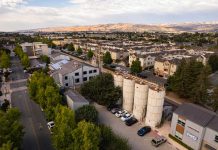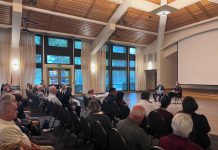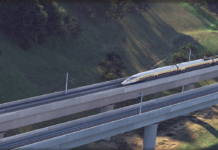Everyone has a right to clean water. It is common sense, it is
ethical and it is the law. We at the Central Coast Regional Water
Quality Water Board work to protect water quality and public health
for everyone on the Central Coast, and sometimes our work is highly
controversial.
By Roger Briggs
Everyone has a right to clean water. It is common sense, it is ethical and it is the law. We at the Central Coast Regional Water Quality Water Board work to protect water quality and public health for everyone on the Central Coast, and sometimes our work is highly controversial.
Is your well water safe to drink? Is the quality of our future drinking water supplies protected?
When we ask people these questions, they often answer “yes, of course.” When we explain that the answers are “no” in many areas of the Central Coast, people have a hard time believing it, they want to know why and they want to know what we are doing about it.
Most sources of pollution have been regulated and controlled for decades. The most notable exception is irrigated agriculture. The Central Coast has some of the most valuable and intensely farmed land in the country, and some of the highest agriculture yields. Agriculture on the Central Coast generates approximately $6 billion per year in revenue, and it is increasing. Agriculture is the foundation of our economy and our culture. But we all use the region’s water, and we all pay to clean that water.
Unfortunately, along with this agricultural abundance, we also have some of the most severe water pollution problems in the United States. This is not sustainable for the industry, our economy, our water resources, or our future generations. Fortunately, our Central Coast farmers are highly adaptive and innovative. The industry is constantly improving and reinventing itself as markets and technologies change. The industry must continue to change, with an emphasis on solving these severe pollution problems. Some farmers are already using effective solutions and should be commended. It’s time to make sure all farmers are doing their part, especially in areas with the most severe pollution. All industries are accountable for pollutants they discharge and resulting public resources degradation. That is the Public Trust Doctrine we must uphold. Notice the words “Public Trust.” This is about the fact that every one of us needs and deserves clean, high quality water.
The Water Board’s mission is: To preserve, enhance, and restore the quality of California’s water resources, and ensure their proper allocation and efficient use, for the benefit of present and future generations.
Over the past two and half years, the Water Board has been working on updating its requirements to control pollution from irrigated agriculture, and to bring these requirements more in line with other water users and industries.
This is the most challenging and important work we have ever done. But we must meet this challenge head on, as we cannot afford to further degrade our groundwater, our drinking water supplies, and our streams and estuaries.
Everyone has a basic right to clean water, including our children. We cannot let the problem get worse. We cannot hand this problem to the next generation. Ask yourself if it is OK for someone to pollute your drinking water or your local stream. Then ask how they should be required to fix the problem. The Regional Water Board is the only agency with the authority to take on this challenge. It is our responsibility, and the time to act is now.
Roger Briggs is the executive officer of the Central Coast Regional Water Quality Control Board.







